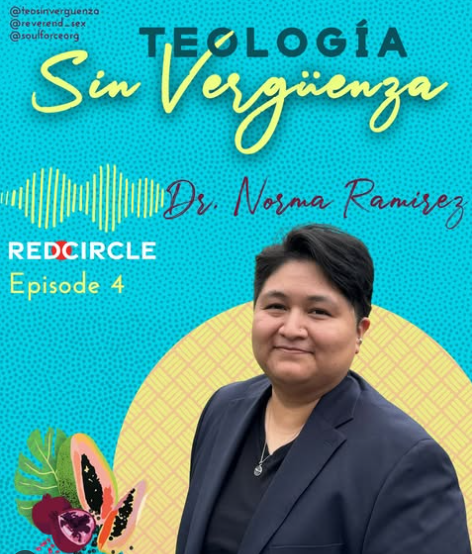Blog
Teologia Sin Verguenza Podcast Episode
Host Rev. Sex engages in a profound conversation with Dr. Norma Ramirez, discussing the intersections of undocumented status, shame, gender, and spirituality within the context of their personal and professional life. The dialogue navigates the parallels between political and religious shame, the influence of harmful theological narratives, and the significance of reclaiming one's inherent worth. Emphasizing collective healing and spirituality, they also explore the unknown aspects of a relationship with God and the importance of ancestral wisdom and interconnectedness in the journey toward justice and healing.
You can find Dr. Ramírez at her website: AllGoodThingsPs.com or on Instagram @AllGoodThingsPsychology


Practicing Failure Podcast Episode
Dr. Norma Ramírez, Ph.D (she/her/ella), is a bicultural-bilingual (Spanish-English) undocumented licensed psychologist in California and Nevada. She has served as the Clinical Director at an immigration non-profit where she provided free therapy and immigration mental health evaluations and is currently growing her private practice. Dr. Ramírez serves diverse populations from undocumented immigrant communities to first generation professionals to neurodivergent individuals to the LGBTQ community.
She is an advocate for the immigrant community, exemplified by her role as a plaintiff against the Trump Administration for illegally rescinding DACA in 2017 and recognition by the Biden and Harris Administration as a Latinx leader. Clinically, she provides direct services to clients, develops and implements behavioral health programming, provides mental health literacy workshops for minoritized populations, and provides workshops to educators, lawyers, and mental health professionals on improving services for undocumented communities. At the intersection of her spirituality, activism, and professional identities, her own marginalized identities inform how she approaches her work in all of these areas.
You can find Dr. Ramírez at her website: AllGoodThingsPs.com or on Instagram @AllGoodThingsPsychology


A Soulful Revolution Podcast Episode
What you’re feeling makes sense.
Dr. Norma Ramírez understands in her own body the psychological burdens her clients carry as they navigate systems of exclusion and dehumanization. As an immigrant and Deferred Action for Childhood Arrivals (DACA) recipient, Ramírez has had to learn to navigate the many heavy and complex emotions imposed by an oppressive society, all while engaging in bold advocacy — including serving as a plaintiff in the 2017 case against the Trump Administration for illegally rescinding DACA.
Our conversation was recorded during the first week of the new administration, as chaos was being unleashed on immigrant communities via Executive Order. Ramírez’s reflections are compassionate, courageous, and profoundly humanizing, and they come as an antidote and a call to action amidst escalating attacks on vulnerable groups.


